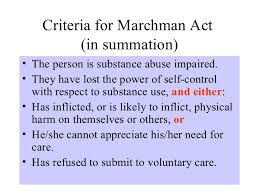 Most people who are arrested for drug use or possession in Pinellas County wind up in the county jail facing criminal charges. While incarcerated, they receive no treatment and often recidivize upon release.
Most people who are arrested for drug use or possession in Pinellas County wind up in the county jail facing criminal charges. While incarcerated, they receive no treatment and often recidivize upon release.
Pinellas County Commission Kathleen Peters wants that to change. Beginning July 1, Pinellas County will have access to 10 beds for individuals suffering from drug or alcohol abuse. That’s 10 more beds than the county currently has.
By comparison, Hillsborough and Sarasota counties each have 30 beds available.
Pinellas County Commissioner Kathleen Peters, whose top priority has been mental health and substance abuse treatment, worked with the Hillsborough mental health and substance abuse treatment program ACTS to create availability for up to 10 patients at a time at the North Pinellas adult residential facility on Keystone Road.
“Ten beds will not meet our needs. There is still so much more to be done. Data shows the opioid crisis is escalating in Pinellas County,” Peters said.
According to a first quarter report on the opioid epidemic in Pinellas County, there were 110 incidents of the drug fentanyl being seized and 24 confirmed deaths from overdose.
While states like Ohio and West Virginia tend to dominate headlines over the opioid epidemic, Florida is still rife with incidents. According to the National Institute on Drug Abuse, there were more than 3,200 overdose deaths in Florida in 2017, higher than the national average.
Pinellas County is a part of the problem. In addition to the high number of incidents reported during the first three months of 2019, analysis of seized drugs found that many of them contained a chemical composition not found anywhere else in the state, meaning the drugs are likely being locally sourced.
Not everyone who uses an opioid goes to the hospital. Under the 1993 Florida Marchman Act, drug abusers can be involuntarily or voluntarily committed for treatment. It’s typically used by friends, family and other loved ones to seek a court order to force assessment and treatment for a person they believe might be suffering from alcohol or drug addiction and at-risk for overdose.
But in Pinellas County, the only place to send individuals subject to a Marchman commitment is the Pinellas County Jail.
“The Marchman Act provides families a tool to help save their loved one’s life and get them on the path to recovery from addiction. Since Pinellas has never had Marchman beds, it is not widely-known that this tool, the Marchman Act, exists,” Peters said. “Bringing in ten Marchman beds to Pinellas County is a huge victory – it allows people to detox in a healthy and safe environment in lieu of the jail.”
In 2017, nearly 1,500 people were admitted to the Pinellas County jail under either a Marchman Act or disorderly intoxication.
1,500 people! That’s a lot for one county and that accounts for only those who were caught or turned in. We have a huge drug problem in this county and it requires treatment not punishment. Drug addiction like alcohol addiction is a disease and yet society continues to criminalize it. It’s time we address the problem properly. If it’s a disease, let’s treat it as such.
